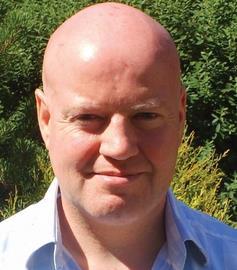Niall Lawless talks to Andy Pearson about his unusual career path
What led you to a career in building services?
My family was involved in construction and from an early age it was a career that always interested me. I believed that it offered a great sense of achievement, variety and diverse opportunities and I have found it to be so. I studied building technology at UMIST followed by postgraduate studies in building services. My first job in the industry was working as a mate to an industrial plumber; it was very worthwhile practical experience.
You’ve had a wide range of jobs, from design engineer to arbitrator, adjudicator and mediator. How did this happen?
I have always been interested in learning new things and having new challenges. I’ve had a wide range of jobs because I have worked in many different industry sectors.
What has been your most difficult career decision?
When I was in my late twenties and wanted contract management experience, I took a job with a company where my salary decreased by more than 25%. The best career decision I made was to learn how to sell. Unfortunately it is true that clients are often much more happy with average engineering solutions sold well than with great solutions sold badly.
Has CIBSE helped you in your career?
Yes, definitely. Becoming a chartered building services engineer was an important milestone for me. I believe many employers see it as your passport to increased responsibility and autonomy. Also, you get a lot more out of CIBSE if you put something into it by becoming involved with the specialist groups and regional branches.
Do you see an increased overseas role for CIBSE – for example in places like China?
Absolutely, I think China is a vast opportunity. I am doing a part time PhD at a University in Beijing and every time I visit China, I’m amazed at the pace and scope of construction. Almost 15% of CIBSE’s members are in Hong Kong SAR – Chinese people believe in education and as CIBSE confers an international badge of quality there’s no real reason why it should not also become prominent on the mainland.
Why did you become an arbitrator, adjudicator and mediatior?
During the mid 1990s, I was involved in a number of building services and building and energy management disputes where I was providing expert opinion as an engineer. In one dispute, I was providing support to the legal team and gave evidence at the hearing for almost three months. I found the experience fascinating and decided that one day I wanted to be the person who made the decision. I studied arbitration at the College of Estate Management in Reading, then studied for the Chartered Institute of Arbitrators fellowship exams.
How does CIBSE support Alternative Dispute Resolution (ADR)?
In my opinion, not very well. During the 1990s, I was actively involved with CIBSE and learnt from experience the contribution specialist groups can make. Managing conflict involving engineering services is important and I felt the creation of a CIBSE ADR group would encourage best practice. Unfortunately the CIBSE Board saw it as a non-technical aspect of building services and didn’t support it.
Does your involvement in martial arts help you with dispute resolution work?
Sometimes it does – for example, last year I was involved in a racially motivated community dispute which involved a lot of anger. Whereas many mediators might have felt uncomfortable perceiving a risk of harm, I did not.
Source
Building Sustainable Design
Postscript
Niall Lawless is a chartered arbitrator and engineer. Visit www.arbitrari.com for more details.
























No comments yet